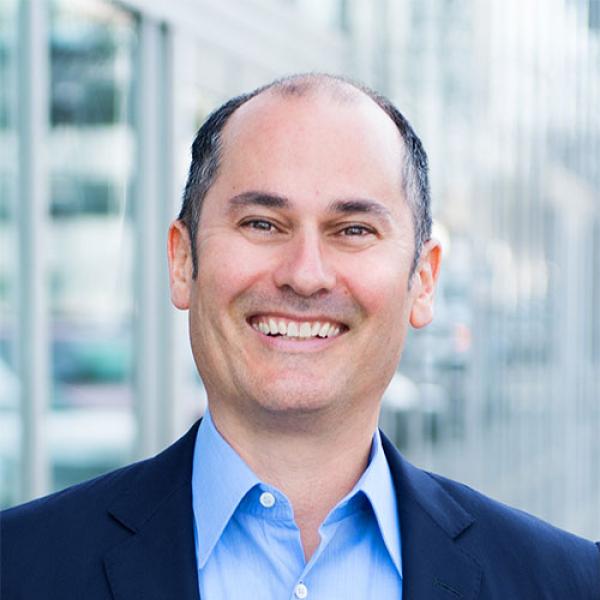“What really is functional medicine?” — I hear this question almost every day.
Functional medicine often seems shrouded in mystery. We toss around terms like cytochrome P450 pathways or the mechanistic target of rapamycin (mTOR) at conferences, and before long, it sounds more like rocket science than healthcare. But beneath the complex language, the principles are surprisingly simple.
Functional medicine focuses on finding and treating the root causes of disease using advanced diagnostics and natural interventions that restore balance across the body’s interconnected systems.
Why Functional Medicine Seems So Complex
Growing up in Berkeley, California, I was surrounded by what you might call hyper-intellectuals. My parents’ friends were professors, researchers, and thought leaders in everything from mythology to physics. My favorite bumper sticker at age nine read, “Eschew Obfuscation.” (I had to look that one up.)
That environment trained me to think critically and translate complex ideas. Similarly, in functional medicine, some leaders are deep scientists — brilliant but not always easy to understand. Others are communicators, translating these ideas into books, podcasts, and social media posts. Unfortunately, the commercialization of wellness — supplements, saunas, air filters — sometimes blurs the line between education and advertising.
So, when patients ask questions about functional medicine, they usually fall into two categories:
- Highly technical: e.g., “What’s the relationship between magnesium and glutathione in detoxification?”
- Practical: e.g., “Why can’t I eat gluten without feeling sick?”
Both questions have the same underlying answer, but one requires a Ph.D. to unpack, while the other just requires experience. The truth is, you don’t need to understand the complexity to benefit from functional medicine — just as you don’t need to understand the molecular structure of water to know that drinking it quenches thirst.
Does Functional Medicine Work?
Yes — when it’s addressing the right problem.
Functional medicine is built on three core principles:
- Root Cause Focus: Identify and treat the source of imbalance, not just the symptoms.
- Systems Thinking: View the body as an interconnected network (like a car’s electrical, cooling, and exhaust systems).
- Therapeutic Relationship: Healing happens through time, attention, and trust — not rushed appointments.
My personal definition:
Functional medicine combines naturopathic treatments that have existed for thousands of years with modern lab-based diagnostics for the neuroendocrine, gut, and detox systems.
Does it work? Yes — because most modern diseases are lifestyle-driven. When lifestyle causes disease, lifestyle change is the treatment.
Heart disease, for example, is linked to diet, stress, and inactivity. Dr. Dean Ornish has proven that these factors — when reversed — can literally reverse heart disease itself.
So if you’re “thirsty,” water works. If your body is “thirsty” for sleep, nutrients, or movement, functional medicine works. The real challenge is consistency — doing what works long enough for your body to heal.
Is Functional Medicine Safe?
Another common question: “Aren’t supplements unregulated and potentially dangerous?”
Let’s use fish oil as an example. It’s one of the most popular supplements in the U.S., known for reducing inflammation, improving mood, and supporting heart health.
Is it dangerous?
- No — if used correctly. If lab tests show you’re deficient in omega-3s, high-quality, mercury-free fish oil can be life-changing.
- Yes — if misused. Poor-quality fish oil may contain toxins like mercury, and over-supplementation can disrupt your fatty acid balance, leading to inflammation.
But this isn’t unique to supplements. Even water can kill you if you drink too much. Moderation, quality, and personalization matter — and that’s exactly what functional medicine excels at.
Why Doesn’t My Doctor Practice Functional Medicine?
Most conventional physicians are trained to treat disease, not promote wellness. Medical school education, heavily influenced by the pharmaceutical industry, focuses on diagnosing conditions and prescribing medications.
Functional medicine, by contrast, emphasizes:
- Nutrition
- Exercise
- Sleep
- Stress reduction
- Emotional and environmental health
Doctors aren’t ignoring these on purpose — they simply aren’t taught them. The medical system itself discourages long appointments, lifestyle counseling, and preventive care.
And frankly, doctors are burning out. The system has become unsustainable. It’s time to rebuild healthcare around what actually works: root-cause, lifestyle-based, functional medicine.
What Supplements Should I Take Every Day?
When patients ask me this, I emphasize that supplementation should be individualized — but some basics help nearly everyone. Here are my personal daily essentials:
🥄 1. Ground Flaxseed
Technically food, but functionally medicine.
- How to use: 1 tablespoon daily, freshly ground. Add to smoothies, oatmeal, or apples.
- Benefits: Supports hormone balance, brain health, immunity, fat metabolism, and skin health.
💊 2. Magnesium
Most people are deficient.
- Dose: Around 200 mg daily.
- Form: Magnesium citrate or glycinate — avoid cheap magnesium oxide.
- Benefits: Boosts cellular energy, supports sleep, relaxes muscles, and calms the nervous system.
🍽️ 3. Digestive Enzymes
Use short-term for bloating or heavy meals.
- Benefits: Improves nutrient absorption and reduces post-meal fatigue.
🦠 4. Probiotics
Support a diverse gut microbiome.
- How to use: Take several times per week, rotate brands and strains.
- Benefits: Aids digestion, immunity, and mood.
These foundational supplements support nearly every system in the body — but the best protocol is always based on lab data and professional guidance.
Final Thoughts
Functional medicine isn’t mystical, alternative, or fringe. It’s logical, evidence-based, and focused on empowering patients to understand their own health.
The most important FAQ might be this:
“Does functional medicine work?”
Yes — because your body works. When given the right environment, nutrients, rest, and mindset, it naturally moves toward healing.
Ready to Learn More?
If you’re a practitioner who wants to master functional medicine diagnostics and treatment protocols, explore our training programs.

